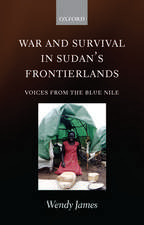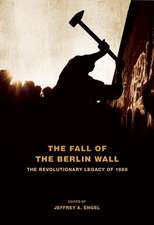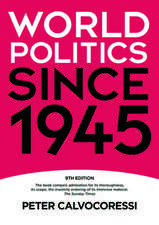Dig: Sound and Music in Hip Culture
Autor Phil Forden Limba Engleză Hardback – 12 sep 2013
Preț: 233.37 lei
Preț vechi: 260.60 lei
-10% Nou
Puncte Express: 350
Preț estimativ în valută:
44.67€ • 48.54$ • 37.55£
44.67€ • 48.54$ • 37.55£
Carte tipărită la comandă
Livrare economică 09-15 aprilie
Preluare comenzi: 021 569.72.76
Specificații
ISBN-13: 9780199939916
ISBN-10: 0199939918
Pagini: 336
Ilustrații: 15 illustrations and 2 music examples
Dimensiuni: 155 x 236 x 31 mm
Greutate: 0.6 kg
Editura: Oxford University Press
Colecția OUP USA
Locul publicării:New York, United States
ISBN-10: 0199939918
Pagini: 336
Ilustrații: 15 illustrations and 2 music examples
Dimensiuni: 155 x 236 x 31 mm
Greutate: 0.6 kg
Editura: Oxford University Press
Colecția OUP USA
Locul publicării:New York, United States
Recenzii
What Dig offers to scholars of U.S. music is its indispensable modeling of a nimble, oblique, and resonant approach to cultural critique. Fords work reminds us of the galvanizing interchange that always tacitly binds music to ideas: it reads the intellectual discourse of an era as something with the properties of music, something mobile, volatile, and alive. For this reason alone, Fords Dig promises to become a canonical entry in the field of early twenty-first century musicology.
[Ford's] conclusions on the Beats, popular music in American culture and the ever-continuing onrush of (blindfold consuming) square culture, nemesis of those who âdigâ things, are unquestionably worth reading.
[Ford's] conclusions on the Beats, popular music in American culture and the ever-continuing onrush of (blindfold consuming) square culture, nemesis of those who âdigâ things, are unquestionably worth reading.
Notă biografică
Phil Ford is Assistant Professor of Music at the Indiana University Jacobs School of Music. His work deals with American popular music in the cold war, performance and auditory culture studies, and the intellectual history of counterculture. He was founder and co-author of the Dial 'M' for Musicology weblog.













